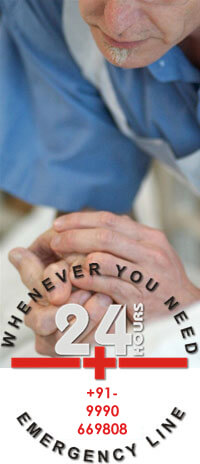Severe Allergic Reaction (Anaphylactic Shock)
First Aid for Anaphylaxis
Anaphylaxis can be described as a serious, severe life threatening allergic reaction which may often lead to death if not given proper first aid and treatment. Most of the anaphylactic reactions occur due to food, medications insect bites and latex are some other objects causing anaphylactic reactions.
Why anaphylactic shock occurs?
When an allergic person comes in contact to an allergic substance the body's defense system called immune system overreacts to this by releasing specific chemicals that cause allergy symptoms. Some times these allergic symptoms are not so severe and are confined to one location of the body. But in some cases the more susceptible people have more serious anaphylactic reaction and more than one part of the body at the same time.
Signs of a mild to moderate allergic reaction:
- Swelling of face, lips and eyes.
- Hives or welts on the skin.
- Tingling mouth.
- Stomach pain, vomiting.
First Aid for Moderate allergic reaction:
- Remove out sting if it can be seen.
- Always stay with person and call for help.
- Give prescribed antihistamines medications to treat mild to moderate allergic reactions, if this progress to anaphylaxis then adrenaline is the only suitable medication.
- Locate adrenaline auto injector if available.
- Contact parent/guardian or other emergency contact.
Watch for any one of the following signs of anaphylaxis (severe allergic reaction):
- Difficult/noisy breathing
- Swelling of tongue
- Swelling/tightness in throat
- Difficulty talking and/or hoarse voice
- Wheeze or persistent cough
- Persistent dizziness or collapse
- Pale and floppy (in young children)
First aid for severe anaphylactic reaction
- Lay person flat - if breathing is difficult, allow them to sit but do not stand
- Give the adrenaline auto injector
- Call Ambulance
- Contact parent/guardian or other emergency contact
- Further adrenaline doses may be given (when an additional adrenaline auto injector is available), if there is no response after 5 minutes.
If in doubt, give the adrenaline auto injector
- Adrenaline is life saving and must be used promptly. Withholding or delaying the giving of adrenaline can result in deterioration and death.
- In the ambulance oxygen will usually be administered to the patient.
- Medical observation of the patient in hospital for at least 4 hours is recommended after anaphylaxis.
- Adrenaline auto injectors available in are Epipen and Anapen. The green labeled versions of Epipen and Anapen are generally prescribed for children aged 1 to 5 years.


































